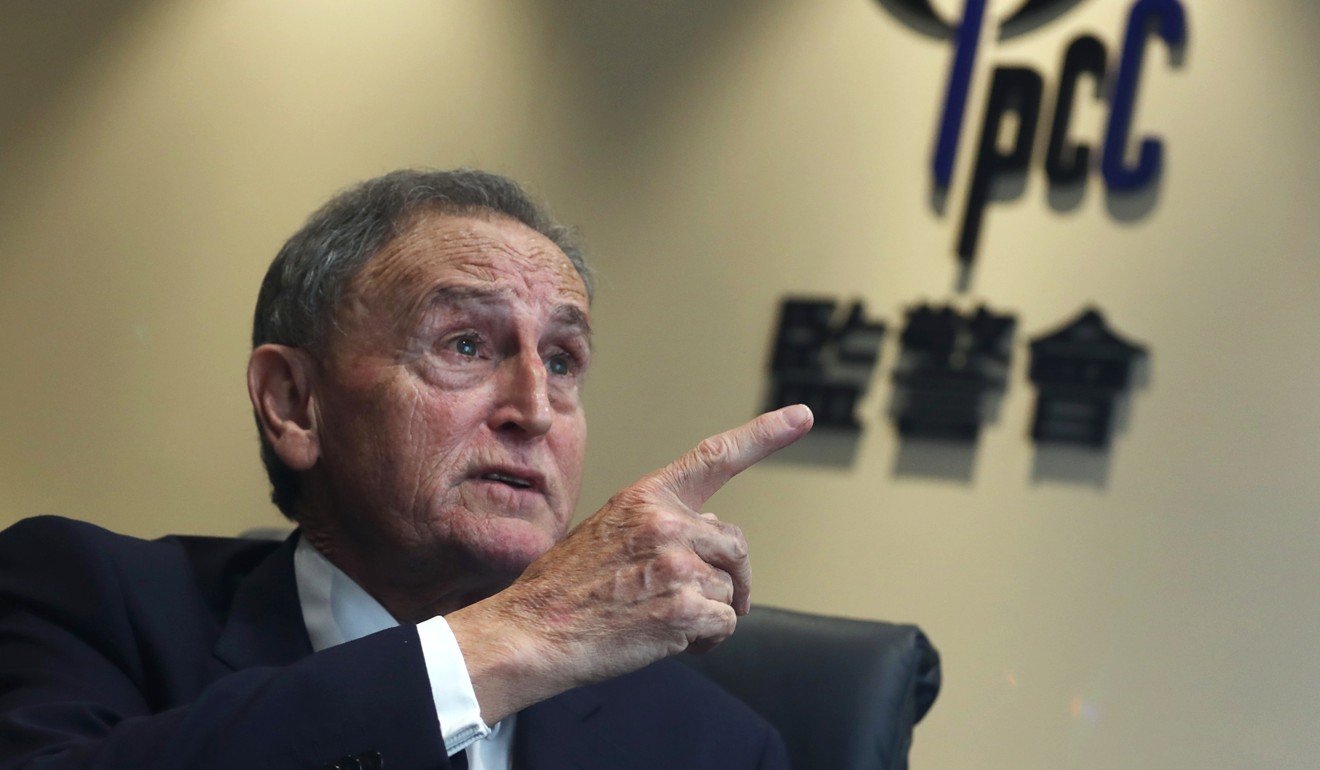
Rebuke for overseas experts who called for changes at Hong Kong’s police watchdog
- Police watchdog chief says the five-member panel lacks understanding of the situation in the city
- The group had called for the body to get more powers to investigate the force
The head of Hong Kong’s police watchdog has rebuked a group of overseas experts who called for the body to be given more power to investigate officers’ conduct during six months of anti-government unrest.
Anthony Neoh, chairman of the Independent Police Complaints Council (IPCC), said the five-member panel, which his body appointed, had overstepped its function and might lack an understanding of the city.
Speaking in a mainland media interview released on Saturday, Neoh said: “They do not really understand our situation, so their proposal has overstepped our statutory function.”

“So I’ve told them, thank you for your suggestions, but we have to follow the law,” he told Shenzhen Satellite TV.
Neither Neoh nor O’Connor immediately returned requests for comment.
Hong Kong police watchdog ‘lacks power’ to probe force conduct during protests
Neoh previously said the IPCC’s investigatory powers could be expanded in the long term, but added that the priority was to hire more solicitors and barristers to assist it.
As well as O’Connor, the rest of the panel comprised former or current heads of police watchdogs in Canada, New Zealand and Australia, and a British scholar on crowd behaviour.
The current investigation focuses on six key dates – protests on June 9 and 12, July 1, August 1 and 31, and an attack on protesters and other passengers at Yuen Long railway station on July 21. It is expected to also look into the use of San Uk Ling Holding Centre, where officers have been accused of mistreating arrested protesters.
It was understood that the preliminary report could be submitted to Chief Executive Carrie Lam Cheng Yuet-ngor by the end of December, with a view to publishing it in late January or early February 2020.
Despite Neoh’s remarks, the IPCC had yet to formally decide on the panel’s suggestions, according to two vice-chairmen, Christopher Cheung Wah-fung and Frankie Yick Chi-ming.
Yick said he was open to giving the IPCC investigatory powers.
‘I just want a safe place to live with my son’: parents share tear gas woes
“Society should have a discussion on whether the IPCC should be given the power. If that’s agreed upon, then the government should revise the law,” Yick said.
But he asked whether such powers would mean “all the problems are solved”, citing the Ombudsman, a government watchdog, and saying that even with investigatory powers, it does not necessarily effect change at government departments.
Cheung, however, attacked the panel. He said its members did not understand the work of the IPCC, and said the governing council reserved the right to only accept part of recommendations.
If any committee or investigation is to target police or blow the force’s enforcement power, this is unjust
“Our work is to review complaints handled by the Complaints Against Police Office and determine whether that is open and transparent ... we will not investigate the police ourselves. That’s not our job,” Cheung said.
Speaking in Beijing, Commissioner of Police Chris Tang Ping-keung said the IPCC should conduct any investigation into the force, as its members were experienced. He added that he understood the separate review committee previously announced by Lam was to look into the reasons behind the social unrest, rather than police specifically.
“If any committee or investigation is to target police or blow the force’s enforcement power, this is unjust,” he said.
“I also note that many people wish to achieve a certain investigation result they long for by setting up different committees. If the result failed to match their expectations, they would object to it as well. So I think any committee is meaningless in that sense.”

